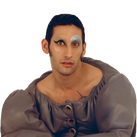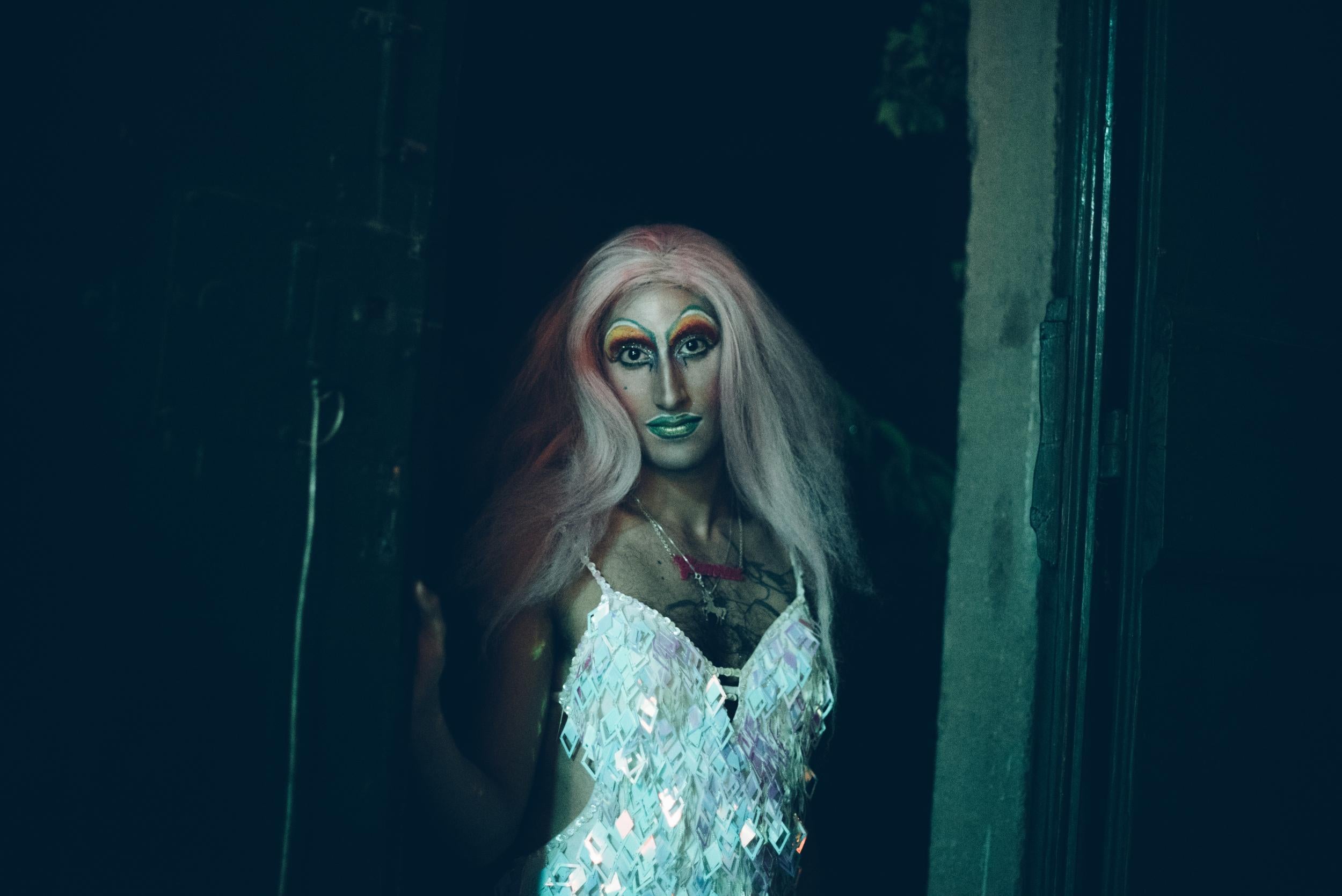Everyone told me I wasn't a proper man – until I started dressing in drag
Suddenly, straight men are falling over themselves to call me 'lad' and 'fella'. Ironically, this never happened until I put on a dress and some make-up


Your support helps us to tell the story
From reproductive rights to climate change to Big Tech, The Independent is on the ground when the story is developing. Whether it's investigating the financials of Elon Musk's pro-Trump PAC or producing our latest documentary, 'The A Word', which shines a light on the American women fighting for reproductive rights, we know how important it is to parse out the facts from the messaging.
At such a critical moment in US history, we need reporters on the ground. Your donation allows us to keep sending journalists to speak to both sides of the story.
The Independent is trusted by Americans across the entire political spectrum. And unlike many other quality news outlets, we choose not to lock Americans out of our reporting and analysis with paywalls. We believe quality journalism should be available to everyone, paid for by those who can afford it.
Your support makes all the difference.As someone who identifies as genderqueer, I disassociate from my male pronoun most of the time – in other words, I often don’t like being referred to as “he” and “him”.
Being seen as male by society has brought a lot of anxiety to my life, as I have been deemed to fail by the expectations of male behaviour (at home, at school, and in the world in general). I’m not traditionally “masculine”, and for a lot of people, that’s a problem.
Around three nights a week, I have the privilege of dressing in drag for a show which I run. Dressing that way gives me a way to celebrate and perform my gender fluidity and helps me to relinquish the anxiety I experience in my daily life. Yet every single time I'm in drag, cisgender men call me "man," "lad," or "fella."
It's often the first thing they say upon seeing me. They bump into me and my drag sisters in the loo, and they greet us with: "Hey lads." They sit next to us on the tube, and we get: “Evening, boys." I’m strutting on the street as if it were a runway, and “You all right, fella?” is hollered from a car window.
It’s strange to me – when I’m not in drag, and ostensibly look “male-bodied”, straight men seem highly reluctant to see me as male (which I don’t mind as someone genderqueer). On the school football field, my inability to even move the ball with my foot was seen as an emasculation. When growing up, my Arab parents drove home that I wasn’t carrying myself like a proper man should – my walk was too limp, my posture lacking gravitas, and my voice without might.
Every day, the ideal targets of male behaviour were held up in front of me, and I was confronted with my failure to attain them wherever I went. The only time I was called “man” was when being told I wasn’t a proper one.
How odd, then, that it has been through dressing in female clothes, and embracing my genderqueer identity so visibly, that I’m suddenly coded as male wherever I go. Why this instinctive need to gender me as male when I present as "female”? It’s like there’s an internal voice lurking in the id of cisgender straight men, shouting to respect the gender binary, so desperate to appease any confusion - "Say man, lad, or fella, and the world will make sense again."
For many people, drag disrupts their comforting illusions of gender stability, and this makes them uncomfortable. Instead of allowing the confusion to dissolve preconceived notions of gender essentialism, they seek to enforce them. Shook by the sudden blurring of the gender prism, they use the words most likely to realign their limited world view.
When I’m in drag, I’m in charge of what people see. But the cisgender male gaze has been so systemically woven into our society that many men can’t deal with it having its privilege taken away.
As my drag alter-ego “Glamrou”, I’m telling the world how I see myself – the world no longer imposes an image onto my body without my agency. Every male pronoun thrown against me is a societal impulse to uncloak my feminine exterior, to reassure people of the “truth” underneath. Often, straight men are aroused by me in drag, which throws into question their sexual security; again, it’s another subversion of the hierarchal male gaze. Instead of being subjected to patriarchal visions of the world, it’s the queens who own the gaze, placing “normal” social expectations under the microscope.
I was recently at a photoshoot with an inspiring drag hero, and we were filming on the street. A man walked by and started recording them on their phone – when they politely asked for him to stop, he became enraged. So much so that he held his camera close up at them, refusing to stop filming, telling us all that he had a right to their image.
I’ve been struck by the fury drag can provoke on countless occasions – many men are simply outraged at our audacity to disrupt a view on the world they take as given. In some cases, this leads to aggression, and for a dear friend of mine and awe-inspiring drag sister, a hideous violent attack.
I often think of drag queens as the human versions of parallel universes: we are a window into a queer way of seeing things. We’re inviting the world around us to fall through the looking glass – so what’s the need to call me “man” and throw us all out of Wonderland?
Join our commenting forum
Join thought-provoking conversations, follow other Independent readers and see their replies
Comments